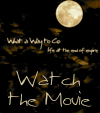“Many Indians have told me that the most basic difference between Western and indigenous ways of being is that Westerners view the world as dead, and not as filled with speaking, thinking, feeling subjects as worthy and valuable as themselves.”
Derrick Jensen (born December 19, 1960) is an American author and environmental activist living in Crescent City, California. Jensen has published several books questioning and critiquing contemporary society and its values, including A Language Older Than Words, The Culture of Make Believe, and Endgame. He holds a B.S. in Mineral Engineering Physics from the Colorado School of Mines and an M.F.A. in Creative Writing from Eastern Washington University. He has also taught creative writing at Pelican Bay State Prison and Eastern Washington University.
Jensen is sometimes labeled an anarcho-primitivist. Jensen says that he sees civilization to be inherently unsustainable and based on violence. He argues that the modern industrial economy is fundamentally at odds with healthy relationships, the natural environment, and indigenous peoples. He concludes that the very pervasiveness of these behaviors indicates that they are diagnostic symptoms of the greater problem of civilization itself. Accordingly, he exhorts readers and audiences to help bring an end to industrial civilization.
In A Language Older Than Words and also in an article entitled “Actions Speak Louder Than Words”, Jensen states “Every morning when I awake I ask myself whether I should write or blow up a dam. I tell myself I should keep writing, though I’m not sure that’s right”.
Jensen proposes that a different, harmonious way of life is possible, and that it can be seen in many societies including many Native American or other indigenous cultures. He claims that many indigenous peoples perceive a primary difference between Western and indigenous perspectives: even the most progressive Westerners generally view listening to the natural world as a metaphor, as opposed to the way the world works. Furthermore, these indigenous peoples understand the world as consisting of other beings with whom we can enter into relationship; this stands in contrast to the Western belief that the world consists of objects or resources to be exploited or used. (From the Wikipedia entry.)





